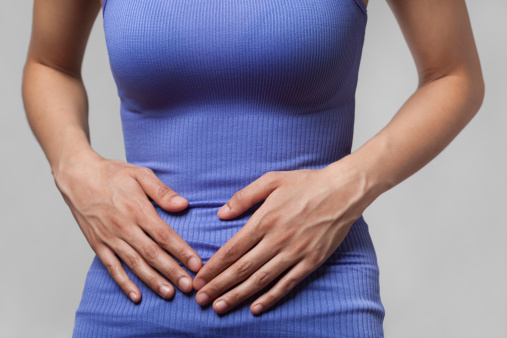
What’s a leaky gut, and how do I know if I have one?
“Leaky gut syndrome,” on its own, is a diagnosis that’s not recognized across the board by conventional medicine. The theory is that having a poor diet or ingesting too many antibiotics or painkillers can damage the mucosal barrier, the layer of cells lining your intestine. Normally, this barrier lets nutrients through but blocks larger molecules and germs from getting into your bloodstream. It’s thought that a porous, or “leaky,” intestinal lining can allow food particles or germs to pass into the blood, causing inflammation throughout your body.
Symptoms of a leaky gut are said to include everything from bloating, gas and abdominal pain to recurrent vaginal infections, asthma and mood swings. Some experts even claim that leaky gut can put you at risk of serious conditions such as migraines, rheumatoid arthritis and food allergies.
Is it for real? There is evidence that having high “intestinal permeability” is involved in the development of certain autoimmune diseases, like Crohn’s and type 1 diabetes, in people who are already predisposed to these conditions. But it remains unclear whether intestinal permeability causes issues such as irritable bowel syndrome, food allergies or asthma—or if it’s just a symptom of them. In my experience, having a “leaky gut” is mostly a symptom of a disease, not a disease on its own.
There are tests your doctor can perform to measure how well your intestines are absorbing nutrients and blocking the bad stuff. The most common one involves drinking a mixture of mannitol (a small sugar molecule) and lactulose (a large one) and then testing your urine for each over six hours. But these tests are time-consuming and expensive, and they don’t reveal anything that your doctor can use to recommend treatment. So, honestly, there is no point in getting them.
Some alternative medicine practitioners recommend supplements or home tests (which they conveniently sell on their websites), but ignore these. The best advice for keeping your gut and its lining healthy is to eat plenty of fiber and fermented foods like kefir, or take a probiotic supplement, and stay hydrated.
This article originally appeared on Health.com
More from Health.com:
You Asked: Your Top 10 Health Questions Answered










More Must-Reads from TIME
- Donald Trump Is TIME's 2024 Person of the Year
- Why We Chose Trump as Person of the Year
- Is Intermittent Fasting Good or Bad for You?
- The 100 Must-Read Books of 2024
- The 20 Best Christmas TV Episodes
- Column: If Optimism Feels Ridiculous Now, Try Hope
- The Future of Climate Action Is Trade Policy
- Merle Bombardieri Is Helping People Make the Baby Decision
Contact us at letters@time.com